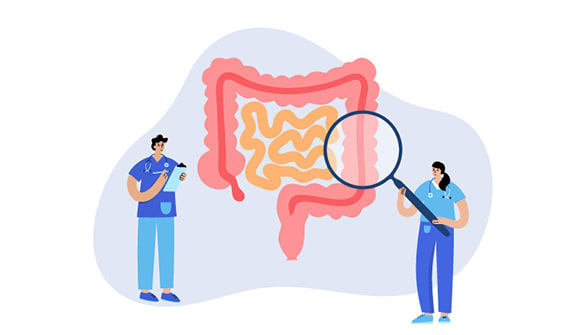3 things to know about your gut-brain connection
Ever get that "gut feeling"? You won't be surprised to learn your gut has a mind of its own.
Article Date:

Have you heard people talk about the gut as a second brain? There are important connections between your brain and your digestive system that can explain, among other things, why you get “that gut feeling” in stressful situations. Here are three reasons why your brain and your gut affect your overall health:
Serotonin works in your brain, but it’s made in your gut – Serotonin is a messenger, a neurotransmitter that helps your nerves talk to each other. It works to reduce anxiety and depression, heal wounds and regulate sleep.
The surprising thing is most serotonin comes from your gut. In fact, 95 percent of the serotonin you need for crucial functions is produced in your gut. Research shows that improving digestive health can have a positive impact on anxiety and depression.
There’s a direct line between your brain and your gut – It’s called the vagus nerve. It starts in the part of your brainstem called the medulla, a major point of information from your brain and spinal cord to the rest of your body. The vagus nerve extends through the abdomen. This physical connection allows the central (brain) and enteric (gut) nervous systems to talk to each other.
The enteric nervous system is located inside your gut. It’s embedded in the lining of your digestive system, from your esophagus all the way to your anus. It can do some things on its own, independent from the brain. It coordinates reflexes, secretes enzymes, and yes, it makes serotonin.
The connection, through your vagus nerve, between your enteric nervous system and your brain makes it possible for you to feel “butterflies in your stomach,” feel nervous to the point of having to go to the bathroom, and develop symptoms of irritable bowel syndrome (IBS).
Scientists are studying how your gut affects not only your mood, but neurological disorders such as Parkinson’s disease, multiple sclerosis and autism. This is relatively new research through the Human Microbiome Project and ongoing research around the world.
When the gut’s on fire, the brain’s on fire – Every day stress can affect the mucosal lining of the gastrointestinal tract, causing additional inflammation. That means that when the gut is on fire, the brain is on fire! Chronic inflammation can reduce serotonin levels, resulting in increased anxiety and depression.
Poor diet can be a risk factor for depression, as unhealthy foods can negatively impact the microbiota (populations of microorganisms in your gut). A healthy balance of good bacteria in the gut can keep not only your mood in balance, but also your immune system. Whole foods, including fruits, vegetables, and whole grains can improve the healthy bacteria in the gut, which can in turn reduce inflammation. Getting enough sleep is also important in reducing inflammation and maintaining a healthy gut.
Your digestive tract can hold the keys to your overall health. Learn more at a Baptist Wellness Center.



